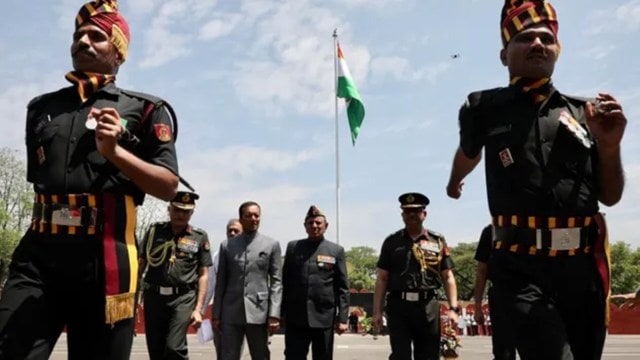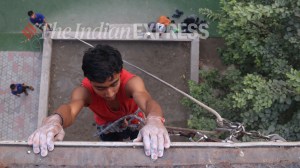Click here to join Express Pune WhatsApp channel and get a curated list of our stories
AFMC’s new institute to use AI for medical research: Lt Gen Daljit Singh
He referred to the National Family Health Survey -5 report which has flagged several concerns, especially about a dual epidemic – TB an infectious disease on the one hand and Non-Communicable Diseases (NCDs) diabetes- hypertension and cancers on the other hand.
 Lt Gen Singh also pointed out that sub-centres have been planned at various locations that would assess medical reports of soldiers. (Representational Image)
Lt Gen Singh also pointed out that sub-centres have been planned at various locations that would assess medical reports of soldiers. (Representational Image)Artificial Intelligence(AI) will be used at Armed Forces Medical College’s new computational medicine institute to develop various modules to handle diagnostic and therapeutic concerns.
“The Armed Forces Institute of Computational Medicine is another feather in the cap of Armed Forces Medical College and will give the institute state-of-the-art resources to undertake cutting edge medical research using AI,” Lt Gen Daljit Singh, Director General Armed Forces Medical Services said on Friday.
President Droupadi Murmu who awarded the President’s Colour to AFMC at an event held on Friday later virtually inaugurated the new computational institute “Prajna”.
Lt Gen Daljit Singh, at a media conference also addressed queries on how cutting-edge technology can be utilised to help soldiers/patients in far-flung areas.
“Be it Chest X-rays, CT scans or MRIs of the (soldier) patients, there will be a database of the images that can be sent to the computational centre. For instance, at a particular location, there would be an X-ray machine that can capture the image of the soldier’s broken bone. However, there is a possibility that a radiologist may not be available to check the scan at that location. So these images would be sent to the centre where the exact problem can be identified by the AFMC experts,” Lt Gen Singh explained.
There has been increasing focus on understanding the impact of Artificial Intelligence in healthcare and at a recent continuing medical education programme at AFMC, experts discussed various challenges for use of AI in AFMS, innovations in healthcare using AI and the emerging science of deep medicine.
Lt Gen Singh also pointed out that sub-centres have been planned at various locations that would assess medical reports of soldiers.
“At certain locations, pathologists may also not be available and here the sub-centres can provide the information based on collecting the blood smear on microscope slides so that they can be digitally analysed for any disease,” he added.
‘Armed Forces are in a healthy shape’
Air Marshal Rajesh Vaidya, Director General Medical Services (Air) also pointed out that the primary role of Armed Forces Medical Services was to maintain fighting forces in a combat-ready fitness.
“We are confident we are successfully doing that there is no question. People in the armed forces are deployed in adverse weather conditions at deserts, jungles and high-altitude locations. There are environmental stresses and we are aware that they face these adverse situations. But they are well protected and the armed forces are in a healthy shape,” Air Marshal Vaidya said while responding to a query on the health status of the armed forces.
He referred to the National Family Health Survey -5 report which has flagged several concerns, especially about a dual epidemic – TB an infectious disease on the one hand and Non-Communicable Diseases (NCDs) diabetes- hypertension and cancers on the other hand.
Mapping of sickle cell disease
Lieutenant General Narendra Kotwal, Director and Commandant, AFMC spoke about plans to map sickle cell disease in Nandurbar district of Maharashtra. “We are setting up a satellite department ,will conduct studies that can show the way forward and what precautions should be taken,” Lt Gen Kotwal said.
Tele-Manas cell
The Chief of Defence Staff Gen Anil Chauhan dedicated the Armed Forces Medical Services Tele-Manas Cell. This is a Mental health helpline that will come in handy for the Armed forces personnel who need help to address mental health issues.
Click here to join Express Pune WhatsApp channel and get a curated list of our stories








